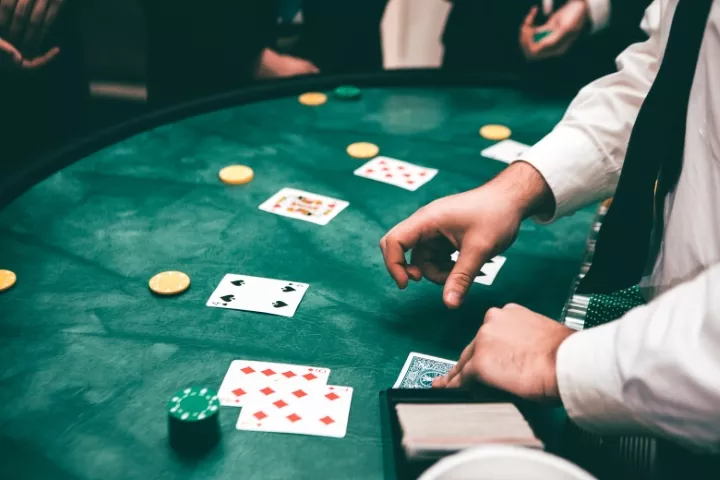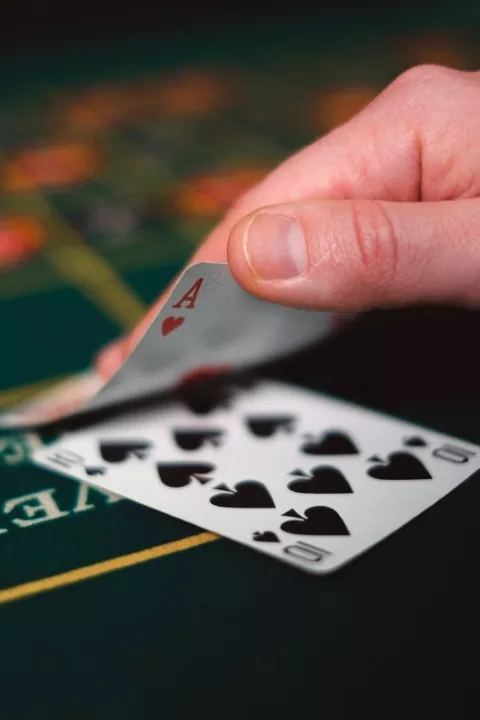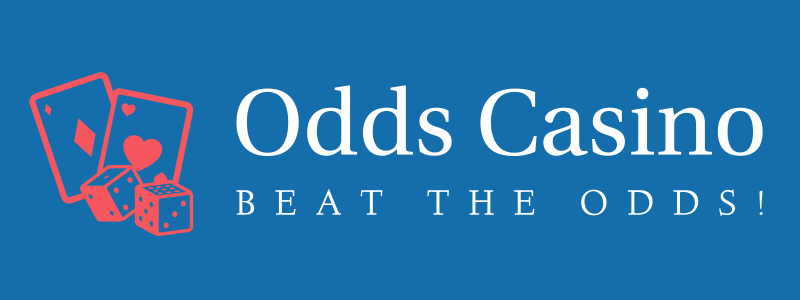Blackjack Strategies

Blackjack Strategies: Master the Game.
Blackjack is the best game where players can seriously win against the House. That is possible because using some strategies, you can put down the the long-term house advantage (the expected loss of the player). Or, at worst, you can minimise the loss.
Practical tips and advices to play Blackjack like a pro
Meaning of Advantage Play at Blackjack.
Pairs are simply two cards of the same points value:
With a pair of aces or 8s, always split
With a pair of 2s or 3s, split if the dealer has 2 through7, if not, hit
With a pair of 4s, split if the dealer has 5 or 6, if not, hit
With a pair of 5s, double if the dealer has 2 through 9, if not, hit
With a pair of 6s, split if the dealer has 2 through 6, if not, hit
With a pair of 7s, split if the dealer has 2 through 7, if not, hit
With a pair of 9s, split if the dealer has 2 through 6, and 8 or 9. Stand if the dealer has 7, 10 or ace
With a pair of 10s, always stand
Advantage play is the attempt to win more using skills such as memory, computation, and observation. While these techniques are legal, they can give players a mathematical edge in the game, making advantage players unwanted customers for casinos. Advantage play can lead to ejection from the Casino and/or blacklisting (you are not allowed to enter the Casino premises!!!).
These are the three main advantage play that are forbidden for gamblers who wants to play in traditional land-based casinos:
- card counting
- shuffle tracking
- Identifying concealed cards (by markings or hole carding)
There are hundreds of good books on Blackjack strategies, but if you want to have an idea, please read the following Blackjack strategies because they can give you an immediate benefit when playing.
Play for free here and try our strategies!!!
Always double down on a hard 11?
Doubling down means doubling your bet and receiving one more card.
If you’re confident that your hand will beat the dealer after receiving your first two cards, you can choose to double your bet. If you choose to double down, you will be dealt only one more card and will be unable to hit.
If you’re dealt a 10 and an ace, you can’t double down because it’s a blackjack equaling 21 and already a winning hand.
While most casinos only allow you to double down after you’ve been dealt your first two cards, some may allow you to place a double down bet after splitting a pair into two separate hands. Check the table rules to see when you can place a bet.
And How to Play a 10 and a 9?
Simple as it is: if you have a ten, always double down on dealer’s 9 or less, and hit against a dealer’s 10 or Ace upcard in all games.
A “hard” hand is one in which you do not have any aces. You have a good chance of getting a high value because there are more chances of drawing a high number than a lower number.
Doubling down with a hard 9 or 10 works best if the dealer has a total of 2-6 in their hand because they have a better chance of getting a lower total or busting.
Other tips
- Split a pair of 8s & Aces
- Never split a pair of 5s and 10s
- Always hit a hard 12 vs. dealer’s 2 or 3 upcard
- Hit soft 18 vs. dealer’s 9, 10 or Ace upcard
- Double down A-2 through A7 vs. 5 or 6 upcard
- Stand with a pair of 9s vs. a 7 upcard
Surrender strategy tips for Blackjack
One of the rules available in some blackjack games is blackjack surrender. Surrendering a hand entails handing over your cards and receiving half of your bet back. If you surrender, you have no further options and cannot win the hand.
It is a complex strategy. so please follow the link and go to the dedicated page for a comprehensive surrender strategy explanation.
Double down on 8 vs. 5 or 6 upcard

My best advice for the correct play is to hit the hand rather than double.
Look, having the eight is not a strong enough hand to warrant doubling. Keep in mind that the average dealer hand has a value of 18.23. So, in terms of a winning hand, you have something that is actually below average.
Also, even with a six as his upcard, the dealer will only bust 43% of the time. So your positive yield for doubling is low because you’ll only win 4% more than you lose.
When you hit the eight, on the other hand, you’ll win nine more hands than you lose per hundred. So the gain from simply hitting is slightly greater than the gain from executing a double-down.
Remember that in the game of blackjack, opinions are irrelevant. Mathematics is important. Probability is given precedence. Solid fundamental play does not rely on the assumption that your “hunch” will be correct this time. We bet on the percentages. We don’t even blink. We memorize the proper procedure and follow it every time.
Never make the insurance bet in a Blackjack game!
Insurance is a safe bet, but it is not mathematically correct. Of course, the difference between actual odds and the odds of something happening is where the casino gets its house edge to ensure a profit. But insurance has a higher house edge than in a normal game of blackjack, making insurance a bad bet.
Insurance is paid out at a 2 to 1 ratio, implying that the dealer has a 1 in 3 chance of getting a blackjack from a face-up ace. However, there are four cards out of thirteen that could complete that hand, giving odds of 9 to 4 – or 30.8%. This is a significant difference from the 33.3%% chance implied by a 2 to 1 payout, and as a result, you’ll lose more money than you win on this bet.
Should you stand on a hard 16?
It depends. According to most basic strategy, you would hit on a hard 16 when the dealer upcard is a 7,8,9,10, or face card, including Aces.
The reason behind this strategy is the dealer most likely has a ten in the hole, and you will need to improve your hand to win. Well. it is quite sure that a lot of the time you will bust, but statistically it’s better to hit.
When the dealer has a 2–6, according to the rules, they will hit on their next card (unless dealers stand on soft 17). In those situations, you want to stand, and give the dealer an opportunity to bust.
Don’t play a 6 to 5 blackjack game
Getting a “natural” hand, in which your first two dealt cards total 21, is one of the most exciting aspects of blackjack. If the dealer does not have 21, you will receive a 3 to 2 or 6 to 5 bonus payout.
Based on a $10 bet, here’s how much you’d get for each of these payouts:
3:2 payout = $15
6/5 payout = $12
Many recreational blackjack players are delighted to get a natural in any situation. In the above scenario, $3 does not appear to be a significant difference.
This is especially true when you consider that in a 6-deck game, you will only receive a blackjack 4.75% of the time. However, changing a natural blackjack payout from 3:2 to 6:5 has a noticeable effect on your chances of winning.
When the natural payout is reduced to 6:5, the house edge rises by 1.39%. This disparity is significant enough that players wonder if it is even possible to win 6:5 games.
